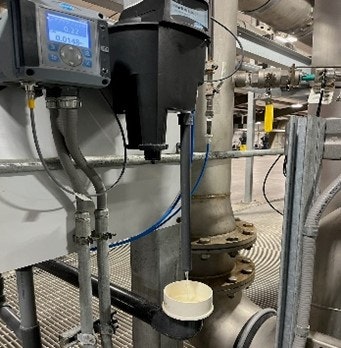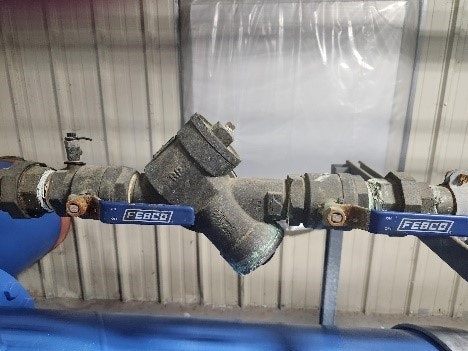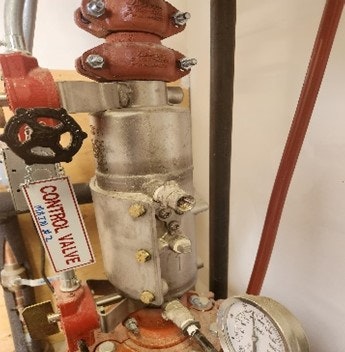Cross-Connection/Backflow Prevention
What is a cross-connection and backflow?
A cross-connection is a direct connection of the water supply plumbing with another system that may contain contaminants or non-potable substances that could be potentially harmful to public health if introduced into the public water supply.
Cross-connection examples include:
Irrigation systems, swimming pools, fire suppression systems, and boilers.
Backflow can occur when there is a sudden loss of pressure in the water system, resulting in either back-siphonage and/or back pressure. These are caused by events such as significant water main breaks or fire fighting demand that suddenly drop the pressure. Negative pressure can cause back-siphonage that creates a vacuum in the piping. These events can result in non-potable substances entering the public water supply through cross-connections.
All connections to potable water systems need to be protected from backflow.
Backflow can be prevented by various methods. The most common method is to install a backflow prevention device within the plumbing system at an identified cross-connection. These devices only allow flow in a single direction.
Colorado Drinking Water Regulations (Regulation 11, Section 11.39) requires that cross-connections must be controlled by a backflow prevention device or method that prevents backflow. These devices or methods must be inspected and tested on an annual basis.
Examples of backflow prevention devices:



The Colorado Department of Public Health and Environment (CDPHE) requires that these be maintained, inspected, and tested annually. All backflow prevention assemblies/devices must be tested by an ASSE certified cross-connection control technician.
Commercial, Industrial, multi-family residential customers are required to submit test/inspection reports to Clifton Water District each year.
Clifton Water will notify you when your annual inspection and/or test is due.
If you own a home (single-family) and have a device installed on a dedicated irrigation system, swimming pools, or water softening system, then test reports must also be submitted each year.
Many local plumbing and fire protection companies have certified technicians that provide testing services. Clifton Water District has certified staff to assist if needed.
Have you received a letter notifying you that a dual check meter yoke has been installed?
Clifton Water District installs a meter yoke (device in which your water meter is attached) that contain a dual check valve. This is an additional measure the District takes to ensure the potable water system is protected from backflow.
Since the dual check valve only allows water to flow in one direction to your home, it may be necessary for you to protect your household plumbing from possible pressure build-up caused by thermal expansion. Thermal expansion happens when water in your system is heated, for example, from your hot water heater. The hot water expands, and pressure builds up in your household plumbing. A simple device called a thermal expansion tank can be installed to remedy the condition. The District recommends that you install a thermal expansion tank or other pressure reducing devices to protect your household plumbing system from potential damage from thermal expansion.
